What Do Breakfast Clubs Do?
In short, they put one veteran in front of another… it seems too simple, but for many, it is life-changing.
The main purpose of the ‘Armed Forces & Veterans Breakfast Clubs’ is to end the isolation of veterans; the most common denominator in Armed Forces Veterans’ mental health issues and suicides.
For some, AFVBC’s are simply a chance to reminisce, like visiting a place they used to live, and they dip in and out as the mood takes them; some need it…. some more than others… but all who attend benefit to one degree or another.
For some, it keeps them alive!
“YouGov research undertaken in September 2017 found that:-
41% of British Armed Forces veterans felt lonely or isolated after leaving the military
34% said they had felt overwhelmed by negative feelings, and over a quarter (27 per cent) admitted to having suicidal thoughts after finishing their military service.
More than three in ten (31 per cent) admitted they have just one or no close friends.
53% would be unlikely to discuss any feelings of loneliness with a family member or close friend, which suggests there is limited support for these veterans.
The most common reasons veterans gave for feeling lonely and isolated included: 41% said losing touch with friends in the Armed Forces, 33% said physical or mental health issues and 23% admitted to struggling to relate to anyone in civilian life”
As a veteran, I knew this for myself, long before the research…..
Most veterans feel they are ‘conditioned’ for service during their basic training, when they are still at an ‘impressionable age’ (most join straight from school), and this conditioning is reinforced throughout their service career, so they are fundamentally changed for the rest of their lives (I know I am). When they leave, ‘returning’ to civilian life is a misnomer, most enter civilian life for the first time as an adult, many in their late twenties, early thirties, or after a full service career, often with little more experience of living within society than the average school-leaver.
Many say that when they walk out of the gate for the last time, they feel ‘abandoned’. Many of those surrounded by close family and friends still have feelings of isolation, simply because they feel ‘different’ from those around them, and find it difficult to discuss their experiences with those who have no concept of what they are discussing, believing they also run the risk being judged.
Civilian life is alien to most; the military have a different ideology, ethics, and even their language sets them apart. I actually went through a long period I would compare to ‘mourning’ when I left… I would often dream I was ‘back in’ and then wake up as ‘a civilian’, which I found very difficult to cope with, and very occasionally it still happens to me now, although I have dealt very much more easily with my own feelings since I started the AFVBC’s.

A few pictures “borrowed” from AFVBC.net
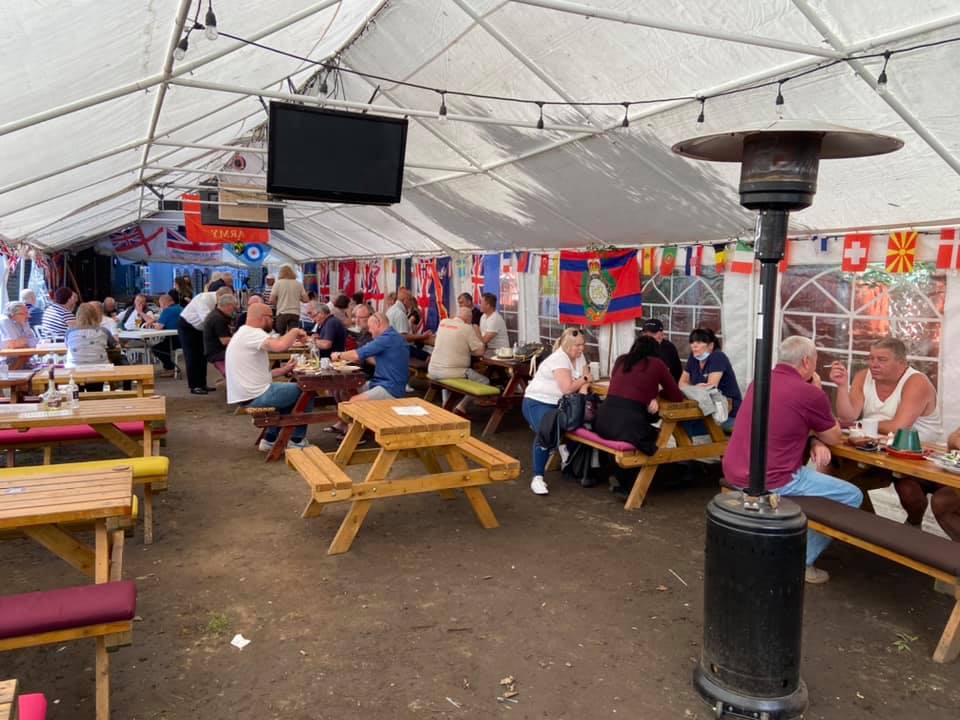
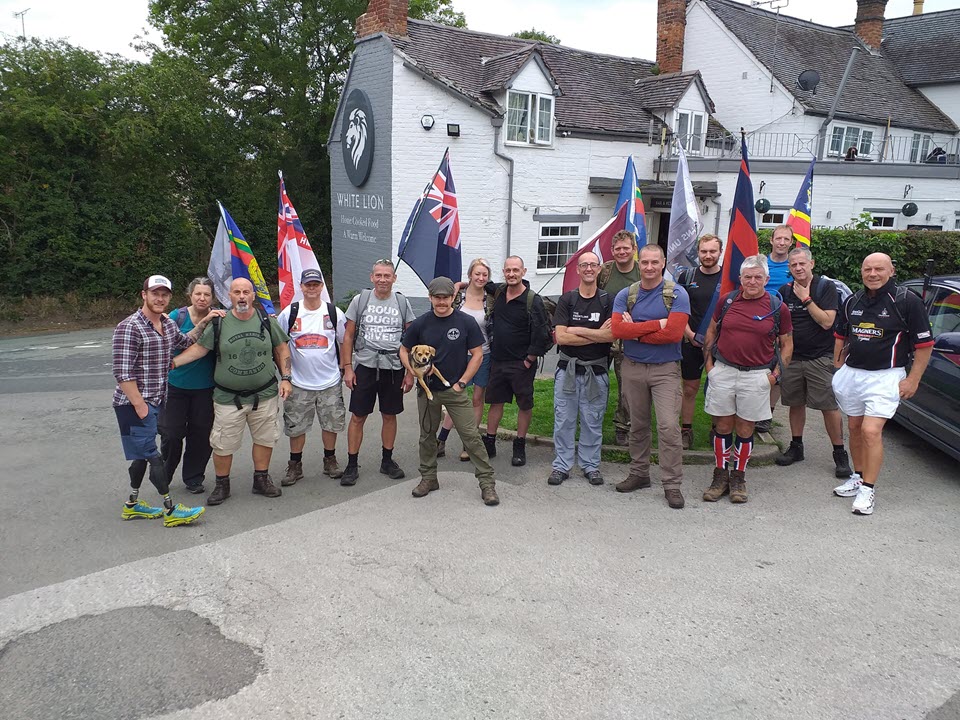
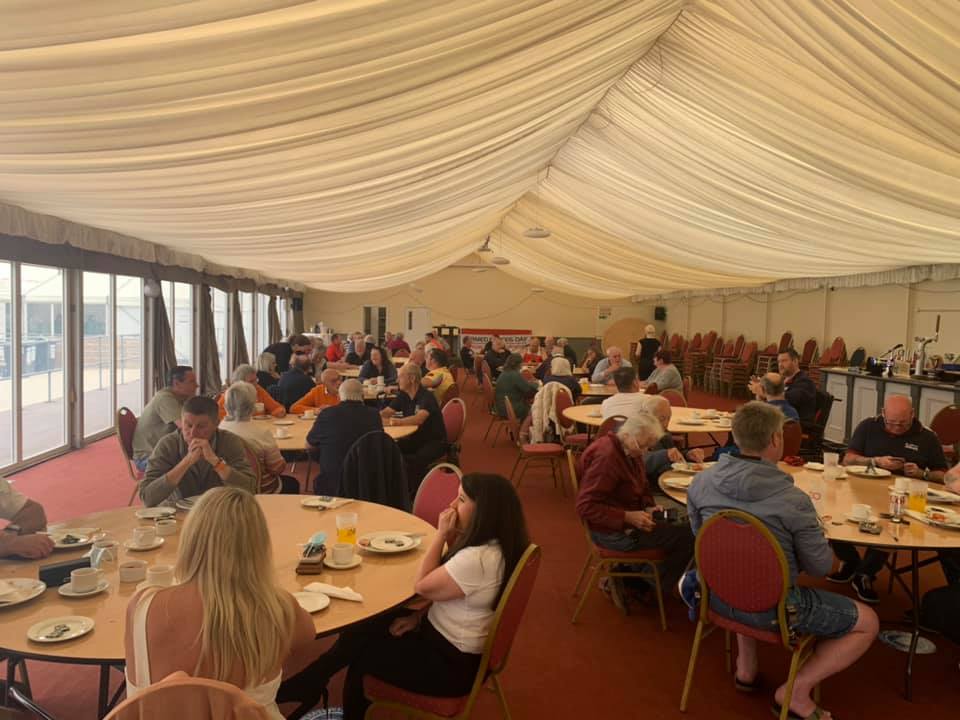
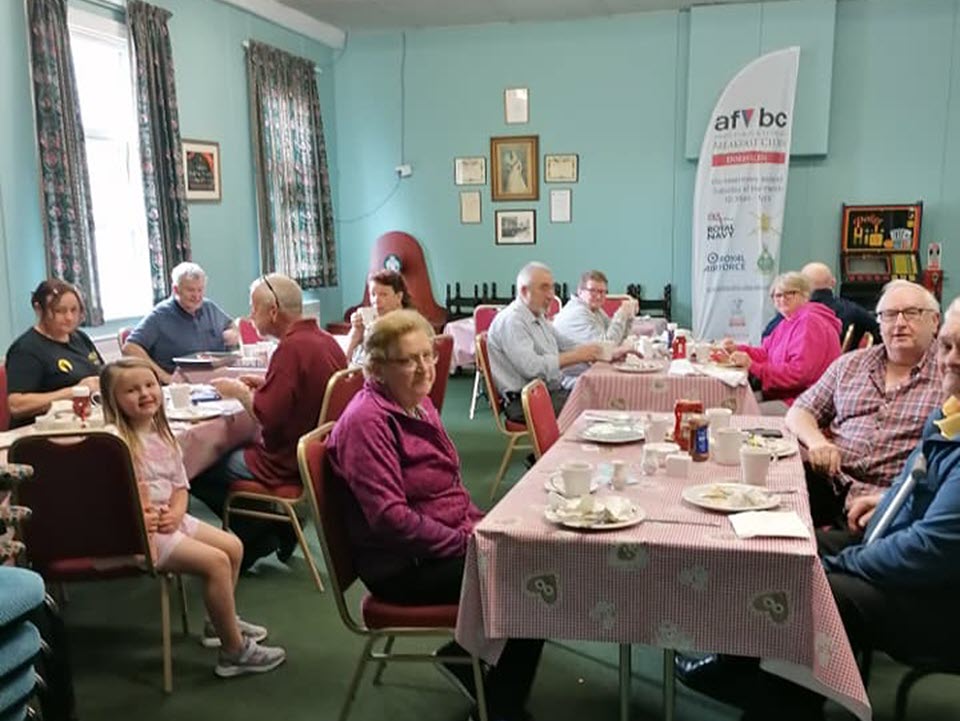
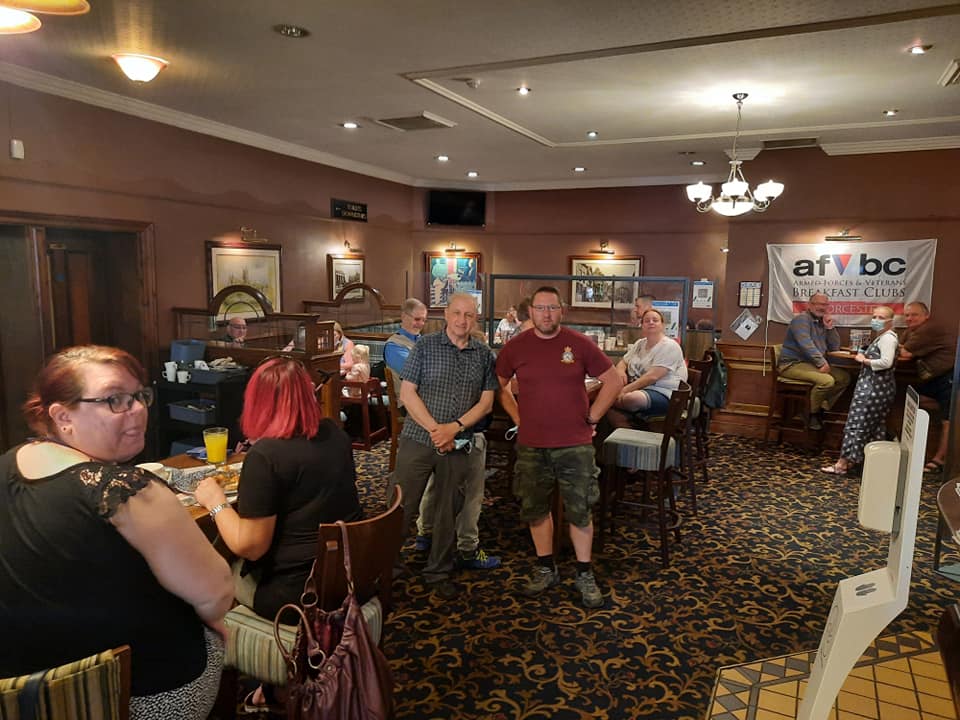
We seek to address these issues, by putting veterans back into almost a ‘pseudo-military’ social environment… it’s the Mess, the NAAFI, the Squadron/Company Bar, the Ward Room, the Cookhouse… veterans speaking the same language as they did, with the same terms of reference of their service – we call it ‘returning to the tribe’ after the TED talk by Sebastian Junger .
This footage was an epiphany for me; I wrote to Sebastian Junger, and received his permission to use the phrase – we now have veterans all over the world ‘returning to the tribe’ with Armed Forces & Veterans Breakfast Clubs… impossible to say how many, because there is no formal registration, but I would estimate there are well over two-hundred-thousand now, increasing daily, joining over 300 hundred clubs, mostly in the UK, but there are AFVBC’s in 14 countries worldwide; it has grown organically, and we have started MORE than one club a week, every week, since June 2014.
I think the AFVBC’s offer an opportunity for vets to stay connected to their military psyche, be part of the family they lost, ending their isolation, and I hope in the future we can develop more connections with the serving military and their units, something which is already happening sporadically, so that new leavers do not feel as if their military family have turned their backs on them.
Within the clubs themselves, they often reflect how society ‘should’ be; older veterans are valued and revered (care homes are bringing veterans in their charge to clubs), they are respected, and nowhere else will you see a 95 year old D Day veteran and a twenty-something Afghan Veteran exchanging quips and banter while eating breakfast together (one club has a 95 year old German U Boat submariner attending regularly!). And when inevitably an older veteran passes away, their families are often surprised to see a guard of honour, standard bearers, a bugler playing last post, and the passing of an old soldier/sailor/airman/woman, who have served their country proudly, being marked with the ‘send-off’ they deserve, instead of an unremarkable ceremony, with few attending, passing off unnoticed.
Often, an Armed Forces & Veterans Breakfast Club starting within a community is akin to dropping a pebble into a pond; because of local AFVBC’s, there are now ‘Veterans Hubs’, funded by local authorities, where there was none before,
Armed Forces Day events and Remembrance Day parades are being organised where previously there was none; AFVBC’s are connecting with their local authorities, often through their local authority Armed Forces Covenant Champion, and the welfare of local veterans who are struggling is being addressed, because increasingly, reps from military charities are attending, getting to know the members, and taking advantage of a bit of ‘peer pressure’ to encourage proud vets to accept the assistance they have earned. There are knock-on effects for the families of those who have served too, with their loved ones’ outlook, social interaction and opportunities fundamentally increased.
This is why they are now spreading all over the UK, across Europe, and around the world, from New Zealand & Australia, to Canada and the USA, organised BY veterans and serving military, FOR serving military & veterans! AFVBC’s are closing the gap between communities and the military, allowing wider society to see that the military and veterans are ordinary people, who, quite often, have done extraordinary things.
I think the AFVBC’s now have an essential part to play in the resettlement of Armed Forces Veterans, and I hope to increase the support for this with the MOD and Covenant in the future, because I also think that this will have an effect on recruiting. Social Media is full of stories of isolated veterans, struggling with their mental health, and although it is only a percentage, potential recruits must see for themselves the results of active service on some resettled service personnel (not something I saw when I was considering joining, because there was no social media, or I may have also thought twice about it) and although the majority cope well when they return to civilian life, it may leave potential recruits with the impression that service life could damage their mental health in the long term.
In actual fact, in many ways, my service was the making of me; it gave me a yardstick to measure myself by throughout my life, showed me I could go beyond what I thought I was capable of, and made me realise I could achieve anything if I fought hard enough for it. That is what the recruitment campaign should be concentrating on (in my humble opinion), that once you have served your country, you will be part of a ‘military family’ for life.
It would have been wonderful, when my service was at an end, if I’d had an Armed Forces & Veterans Breakfast Club to go to, so I could have remained, partially at least, part of the tribe when I needed it… thankfully/hopefully, that is what we will achieve in the future.

